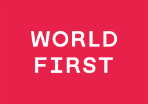Daniel is Founder and CEO and has 20 years of experience in the international finance world focusing on cross-border payments, technology and the property sectors. Daniel is widely quoted as an expert within the money transfer industry including by The Economist, The Wall Street Journal, Reuters, CNBC and Bloomberg. Daniel is passionate about helping consumers and businesses find the best and most efficient ways to transfer money internationally.
Frequently asked questions
How we calculate the savings
Contents
Summary
Qatar’s money transfer regulations
Qatar’s regulatory authority
Qatar’s economic background
Investment conditions
Currency
Qatar to Individual Country Guides
Summary
The Qatari riyal (QAR) is fully convertible, and Qatar does not restrict overseas transfers of funds from capital gains, interest, dividends, royalties or management fees. The Qatari riyal has been pegged to the US dollar (USD) at a rate of QR3.64 per US$1 since 1980.
Qatar’s money transfer regulations
There are no restrictions on the import and export of funds into and out of Qatar. Anyone with a residence visa in Qatar is allowed to open a bank account and to import and export funds, and there are no limits on the physical transport of cash. Similar to other Gulf economies, Qatars dense financial network makes sending money to and from the country relatively simple. In 2014, the country counted 18 licensed banks - 11 Qatari and 7 foreign - and 20 foreign exchange houses. Given the countrys high remittance outflows with workers sending money from Qatar to India, Pakistan and Nepal in particular, the central bank has authorised mobile money providers Ooredoo and Vodafone to offer money transfers services in conjunction with licensed money exchangers in Qatar.
As the countrys oil and gas exports are priced in USD, and with minimal demand for the riyal outside of Qatar, the USD peg is likely to continue.
Qatar’s regulatory authority
The Qatar Central Bank (QCB) oversees the operation of the financial system, sets monetary policy, promotes price stability, and provides direct oversight and licensing of banking institutions. In 2005, the government established an international business and financial centre, the Qatar Financial Centre (QFC), that was ranked as the leading centre in the Middle East in 2014 in Long Finances annual survey of global financial centres. The centre is overseen by an independent authority, the QFC Regulatory Authority, and has its own civil and commercial courts.
Qatar is a member of the Gulf Cooperation Council (GCC), a regional political and economic association that also includes the UAE, Saudi Arabia, Kuwait, Bahrain and Oman. GCC countries have discussed efforts to coordinate their monetary policy, and a regional Monetary Council has been established in Saudi Arabia. A project to create a common GCC currency has been proposed and mooted on multiple occasions in the last thirty years. Talk of a currency union picked up again in December 2013, though only four nations - Qatar, Saudi Arabia, Bahrain and Kuwait - are on board with the projects latest iteration. Currency union is still a long way off.
Qatar’s economic background
Thanks to its vast oil and gas resources, Qatars fast-growing economy has the highest level of income per capita in the world. Its tiny national population, which numbered 280,000 in mid-2014, is dwarfed by the roughly 1.7m expatriate workers. Foreign nationals play an important role at all levels of the Qatari economy, from business leadership to a large number of migrant labourers - mostly from India, Pakistan and Nepal, but also Egypt and the Philippines - who drive many domestic industries, including petroleum and construction.
The Gulf emirate is known for its restrictive labour policies and regulation that favours Qataris over foreign nationals, particular with regard to investment, land ownership and import-export activity. And yet, Qatar is very engaged in the foreign exchange market, both for its high volume of international trade and reliance on imports for basic goods, as well as worker remittances, and the government has established an open foreign exchange policy to facilitate this activity.
Investment conditions
Foreign direct investment in a number of non-hydrocarbons industries is limited to a maximum 49% share in order to protect domestic firms from competition. The countrys investment regulations vary by sector, and we recommend consulting relevant conditions listed in the Investment Law No. 13/2000 and a recent amendment, Law No. 9/2014.
Foreign investment in the banking and insurance sectors is restricted in most cases, except for operations located in the QFC. Financial service providers are permitted 100% ownership of their QFC plot and profits can be remitted freely. Companies in the zone are permitted to conduct business both in Qatar and abroad, using Qatari or foreign currency.
Currency
Qatars monetary unit, the Qatari riyal (QAR), is made up of 100 dirhams. Banknotes are produced in denominations of QR1, QR5, QR10, QR50, QR100 and QR500. Coins are produced in values of 5, 10, 25 and 50 dirhams.
Qatar to Individual Country Guides
Money Transfer Qatar to India















